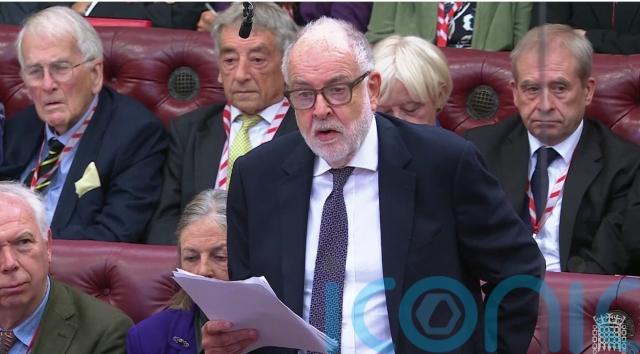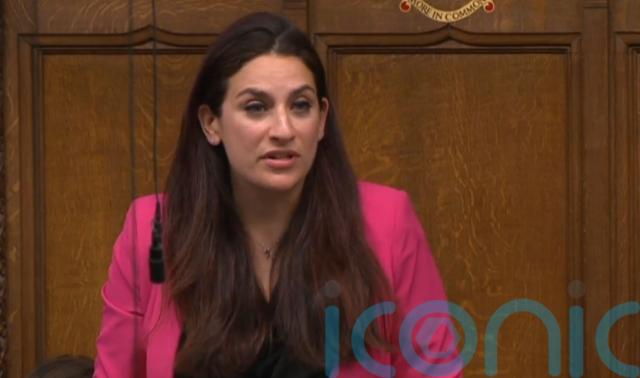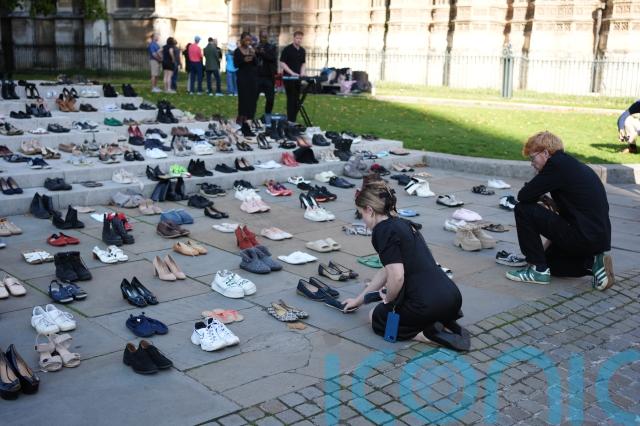
Dying people were left distressed after language used by former prime minster Theresa May during debate on controversial draft law to legalise assisted deaths, the House of Lords has heard.
The Terminally Ill Adults (End of Life) Bill is back in the Lords on Friday for the second day of debate, after impassioned arguments last week saw it branded a “‘licence to kill’ Bill” among opponents but described by supporters as a way of giving choice and showing compassion to dying people.
Conservative ex-prime minister Baroness May, speaking during the first day of Lords debate last week, referred to it as an “assisted suicide Bill” and said it “effectively says suicide is OK”.
She told peers: “I have a friend who calls it the ‘licence to kill’ Bill.”
But some of her colleagues have now expressed dismay at the language used, with one saying terminally ill people had contacted her in distress.
Speaking on Friday, Baroness Thornton said: “I was saddened last week by the noble Lady Baroness (Theresa) May speaking about this being a ‘suicide Bill’.
“People have written to me in the last week, very distressed, and they say, ‘we are not suicidal, we want to live, but we are dying, and we do not have the choice or ability to change that’.
“Assisted dying is not suicide.”
Echoing comments from others supportive of a change in the law, she told her colleagues their job is to “scrutinise it (the Bill) further and improve it, if we need to do so”.

She added: “It is not our job to kill this Bill.”
Baroness Blackstone said she felt “affronted” by some of the language used including references to “the ‘killing Bill’ or the ‘assisted suicide Bill’”.
Labour peer Baroness Jan Royall of Blaisdon said she had been “dismayed at the conflation made by some of suicide and assisted dying”.
She added: “This isn’t just about careless language. It is actively damaging to people who are already suffering.”
But Lord Curry of Kirkharle argued that the Bill’s passage into law would “devalue the importance of human life and economics will become part of the decision-making process – the NHS will save money and families will protect their inheritance”.
He told the chamber: “We are at a crossroads and must decide what kind of a nation we want to be.”

Lord Patten of Barnes, the former governor of Hong Kong, speaking against the Bill, branded it an “unholy legislative mess” and suggested it could lead to death becoming the “default solution to perceived suffering”.
There have been concerns among some of the Bill’s backers that peers against the proposed legislation would try to block it or “talk it out” so that it runs out of time to become law before next spring when this session of Parliament ends.
Lord Charlie Falconer, the Bill’s sponsor in the Lords, is expected to support an amendment from Baroness Luciana Berger to set up a special committee to call evidence from the likes of the Health and Justice Secretaries as well as legal and medical professionals to address what opponents say are outstanding issues to be dealt with in the draft legislation.
Baroness Berger, speaking ahead of Friday’s debate, said there is “support from peers across the House of Lords for this unprecedented select committee because there is a deep concern about the lack of detail in the Assisted Dying Bill and how it would work in practice”.
The committee of around a dozen peers would likely be formally launched next month and must report to the Lords by November 7, before the Bill can progress to the next stage of the legislative process.
Lord Falconer, who was opposed to Baroness Berger’s original suggestion of a special committee sitting until the end of the year, meaning the Bill’s progress was likely to be delayed until January, described – ahead of the debate – the new amendment as a “constructive and sensible compromise”, adding that the Bill “now has time to go through all its stages in the Lords”.

The committee, known as a select committee, is expected to focus on how an assisted dying service would be funded, the potential impact on the health and justice systems and the role of coroners and various medical professionals in the process.
The legislation proposes allowing terminally ill adults in England and Wales, with fewer than six months to live, to apply for an assisted death.
This would be subject to approval by two doctors and a panel featuring a social worker, senior legal figure and psychiatrist.
Friday afternoon is likely to see a motion to agree Second Reading at the end of the debate. That is not usually put to a vote in the Lords but it can be.
Campaigners against the Bill gathered outside Parliament during the debate, setting out shoes to symbolise what they said could be the lives lost if assisted dying is legalised.
Assisted dying will become law in England and Wales only if both the House of Commons and House of Lords agree on the final wording of the Bill.
If it does pass into law, the Government has four years in which to get an assisted dying service into place, meaning it could be 2029/30 before the first assisted death takes place.
Subscribe or register today to discover more from DonegalLive.ie
Buy the e-paper of the Donegal Democrat, Donegal People's Press, Donegal Post and Inish Times here for instant access to Donegal's premier news titles.
Keep up with the latest news from Donegal with our daily newsletter featuring the most important stories of the day delivered to your inbox every evening at 5pm.